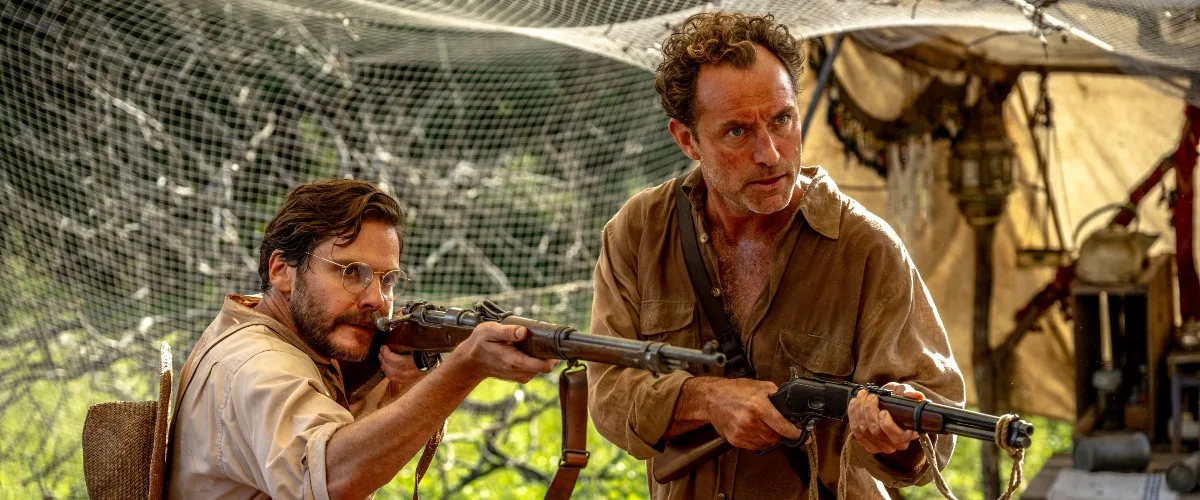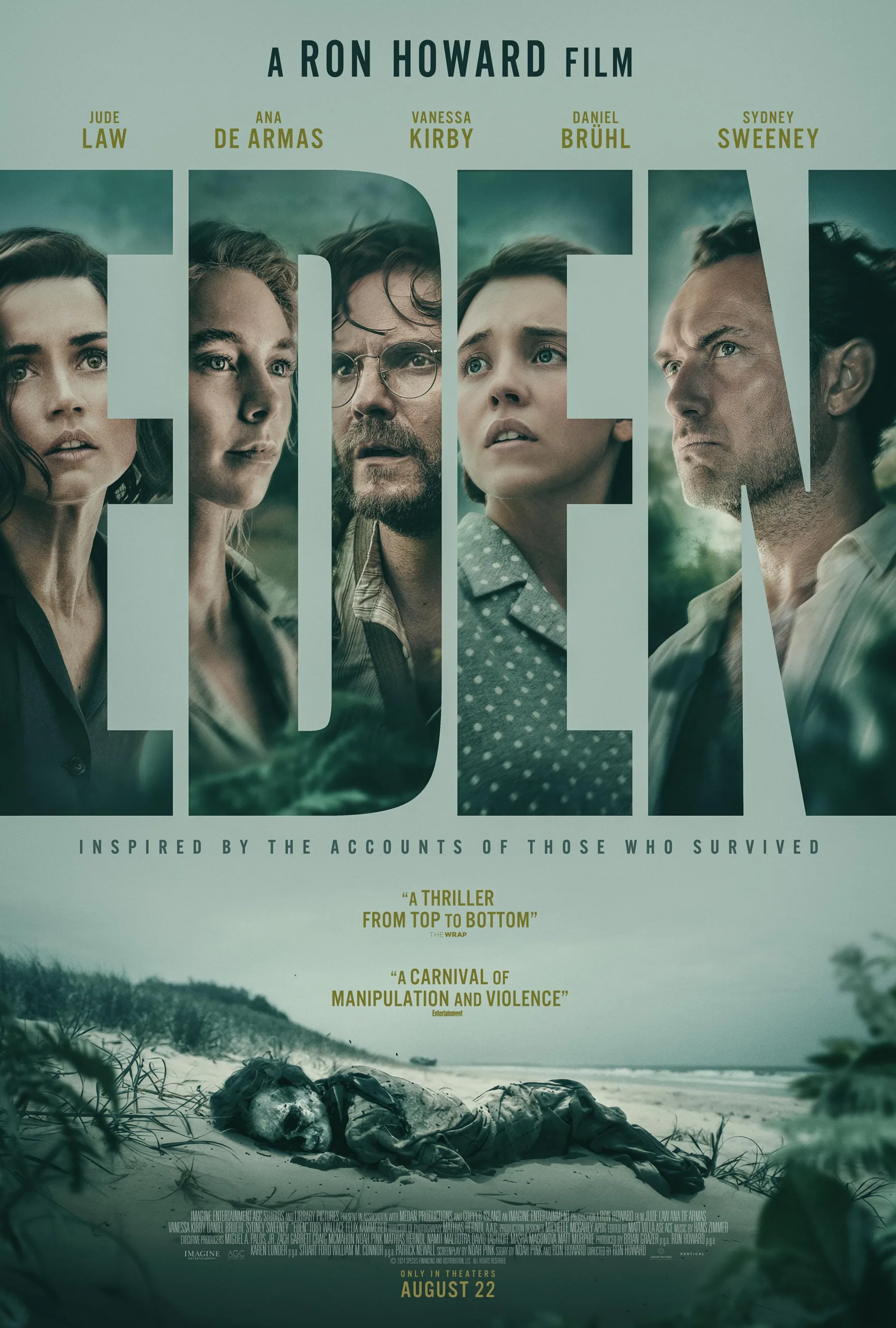Humans are a lot better at imagining Eden than creating one. Ron Howard’s “Eden” is based on the real-life story of a 1930s experiment in utopia on an island called Floreana in Ecuador’s Galápagos Archipelago. More specifically, it was three separate experiments on an otherwise uninhabited island, with three very different ideas about their purpose in being there. Screenwriter Noah Pink (“Tetris”) assembles the story like a Tetris game, with all of the pieces moving at increasing speed as they shift positions to fit together. Chekhov, who said that if a gun appears in the first act of a play, it must go off by the third, would approve of the way Pink’s script, based on a story he co-created with Howard, reconnects in the last third with all of the core elements that came before.
Floreana’s first arrival is an idealistic German couple, Dr. Friedrich Ritter (Jude Law) and Dore Strauch (Vanessa Kirby), whose commitment to living off the grid is so ferocious that Ritter yanked out all of his teeth as a preventative measure to forestall any painful dental problems. He uses metal dentures to eat and only plant-based meals because he is opposed to eating animals. Ritter and Strauch are not there to build a new society themselves. They want to inspire other people to build a new society based on the letters he’s been publishing in German newspapers. He spends most of his days typing his “radical new philosophy that will save humanity from itself,” and she spends most of hers tending to the vegetable garden and to her beloved burro. They have no interest in attracting anyone to the island.
But those published letters are so enticing that three more German people arrive on Floreana: Heinz Wittmer (Daniel Brühl), his son Harry (Jonathan Tittel), and his young second wife, Margret (Sydney Sweeney). Ritter wants nothing to do with them, so they end up building a house and water system for themselves at another location.
And then The Baroness (Ana de Armas, like a lightning strike of beauty and danger) arrives, hoisted on the shoulders of the men she has brought with her, along with plans to build a luxury hotel (“millionaires only”) on the island. She is seductive, manipulative, deceitful, and wildly flamboyant, in silk, bright lipstick, and jewels. The men she brings are her lovers, bodyguards, and staff for building the hotel, and they haul onto the island exactly the kind of comforts of civilization Ritter and Strauch despise. They set up a third encampment.
From that point on, as the three groups face the challenges and deprivations of life on the island, shifting loyalties and increasing hostilities emerge. There is no discussion of how to establish any kind of rules, and, as we see, no overlap between the personalities, goals, or values of the three groups.
At first, they try to keep to themselves. Ritter says he does not want to love his neighbor; he wants to escape his neighbor. He despises the piety of the Wittmers and the decadence of the Baroness and her men. But circumstances force them to interact, sometimes grudgingly, sometimes with outright hostility. We see how ineffective humans are at keeping hungry animals from food in a cultivated garden. And then we see how humans abandon “civilized” notions of ownership out of hunger. “Can you please pass me the stolen meat?” Heinz asks the Baroness at her absurdly “civilized” dinner party. Ritter will not have a gun–until he decides he needs one. Once he has it, what he decides to do with it escalates quickly.
A visitor to the island (Richard Roxburgh, excellent as real-life Hollywood millionaire G. Allen Hancock) arrives on a scientific expedition. He tells the island inhabitants that they exemplify Darwin’s theory of survival of the fittest. We will see what, in this environment, “fittest” means. In Margret’s case, it means, in part, the ability to deliver her baby all by herself. Sweeney’s performance in this scene and throughout the film is a highlight. Her work is very subtle but makes clear Margret’s quiet honesty, decency, and courage and her ability to learn from what she observes around her in sharp contrast to the other characters. The direction and screenplay struggle at times with the more extreme characters and developments. The three groups are so strikingly different in outlook, goals, and tone that the film cannot quite keep them in the same narrative until things go haywire near the end.
Cinematographer Mathias Herndl shows us that Floreana is not a postcard-pretty island paradise but a harsh and unyielding setting. Hans Zimmer’s score evokes increasing uneasiness as the story builds to a climax of violence and chaos.
Anyone who has ever seen a too-perfect suburban lawn should appreciate the conflict between the human impulse to “return” to the imagined peace and perfection of nature and the impulse to achieve it by adding numerous man-made chemicals and constant attention. Nature, as Tennyson reminded us, is red in tooth and claw. Whether humans try to conquer it or return to it, so are we.




















